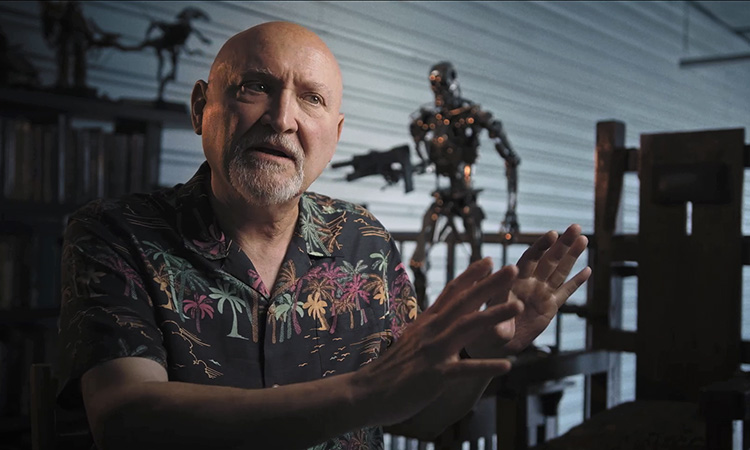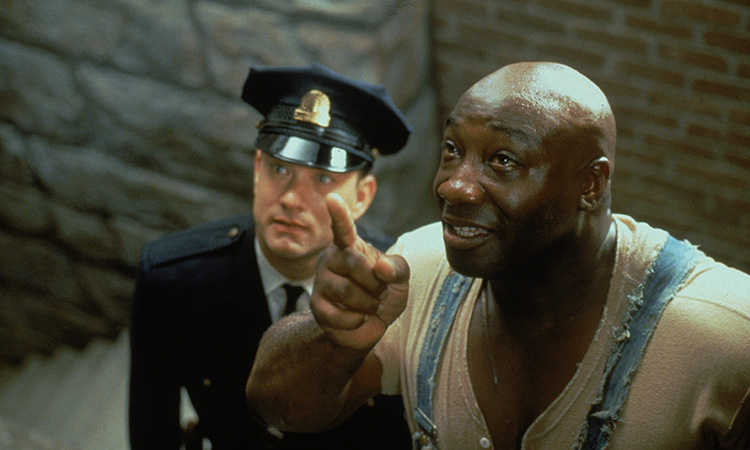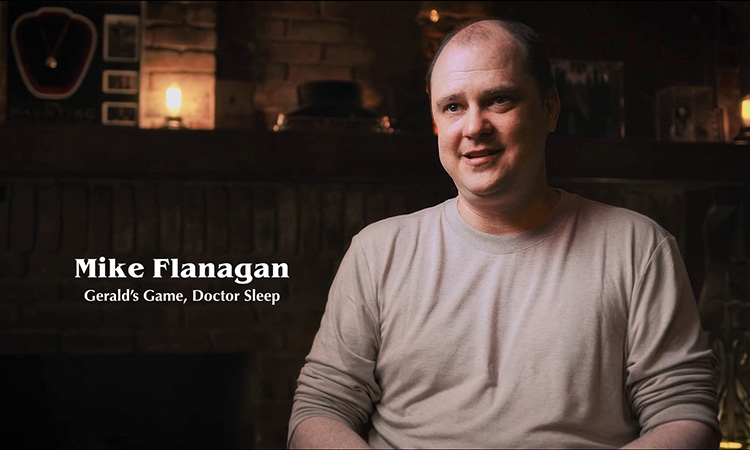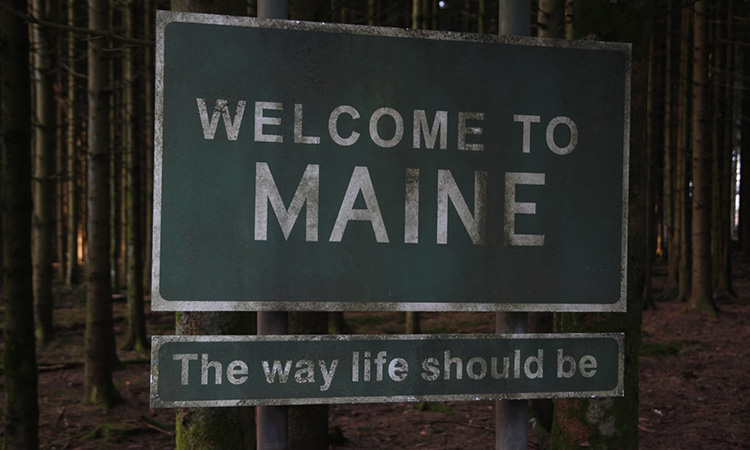Directed by Daphné Baiwir, new documentary Stephen King On Screen gives fans of the beloved nightmare writer a chance to meet the directors and creatives who brought unforgettable stories to the big screen from Carrie to IT, Misery, Stand By Me, Cujo, Children of the Corn and more.
The documentary features Hollywood legends Frank Darabont, Tim Curry, Tom Holland, James Caan, Mike Flanagan, and more, who discuss their own journeys into the fantastical world of Stephen King.
We take a deep dive with Baiwir to discuss all things Stephen King…
How did everything start with Stephen King On Screen?
Everything started in December 2019 when we got in touch with the first directors and we asked them if they were willing to participate, since the point of the documentary was really to have the directors’ point of view.
It was the first milestone. Like ‘okay, if we are doing this we really want to see who is willing to participate in film’. So that’s how the adventure started.
Why did you want to make a documentary about Stephen King and his works on screen?
I saw a couple of documentaries about Stephen King and the thing that really struck me each time was the fact that we didn’t have really the director’s point of view on the work of Stephen King, He’s the most adapted author so that would make sense. I think there is a lot of stuff that is really fascinating in Stephen King’s works. For example, how he always treated and wrote about female characters. When you see that Carrie was his first novel, it’s amazing, because it’s so well written with everything that goes on inside the character’s head.
There are so many great things and that was one of the things that really triggered me.
Talking about all the themes that are really present in his work, like politics, was something that was really important to me and talking to the directors was crazy because you really manage to understand how the process of adapting an author works.
Was there anyone in the documentary that you particularly enjoyed speaking to?
Frank Darabont [The Shawshank Redemption, The Green Mile]. It was amazing because he’s a director that I’ve loved since I was a child.
I grew up watching all of Frank Darabont’s movies. He was my favourite director. So having the opportunity to talk with him for like two hours and being able to ask a lot of questions about his work… Being a filmmaker myself, I was learning so many things. It was incredible to have that chance.

Was there anything surprising that you found out while making the documentary?
I learned a lot. The process of adapting is always fascinating because you are meeting so many different people and they all have a way to work, and they are not always the same. In the end, I had like 40 hours of interviews. It was like taking a master class each time we talked to the directors. We learned a lot about their vision, their work and the vision they had on Stephen King as well.
What makes a good Stephen King adaptation?
Well, for me, it’s not the fact that you are 100% faithful to the book because you can make a great adaptation and change things. For example, The Mist or 1408, is a great film as well. For me, it’s more about the essence of the author – if the film faithful to the author and not necessarily to the book.
What’s your favourite Stephen King adaptation?
The Green Mile. It’s one of the films that I really love. It’s a film that I can watch every year and have the same emotions. It’s something that is really important for me in a film, actually, the thing that will make you connect. If you don’t feel emotion watching a movie you won’t connect with it.

While making the documentary, was there an adaptation that seemed the least popular?
You might think it would be Maximum Overdrive, but actually talking to people, a lot of them love it, me included. I think it’s one of those guilty pleasures. It’s just one of those films that you have a good time watching even though it’s a little bit different.
And Silver Bullet actually is really loved amongst the filmmakers I Interviewed, so it was funny to discover that actually.
Is there an underrated adaptation that you think is actually good?
I talk a lot about Delores Claiborne in the film because I think it’s an adaptation that is not very famous. People don’t talk about it a lot when you ask them what adaptation they love, but I think it’s a powerful one. It’s a great film.
Is there any Stephen King book that you think can’t be adapted?
A funny thing is Gerald’s Game. When I read it, I thought ‘no way’. But Mike Flanagan did an amazing job. It’s so interesting the way he wrote it and the way he adapted it. I think it works really well in the end.
But besides that, I would say that re-making films is something that I wouldn’t be excited about, like if someone today was remaking Shawshank Redemption! The books that have been already adapted shouldn’t be (for some of them) adapted again.

If you could adapt any Stephen King book, what would it be?
I’ve been reading Stephen King books since I was a child. It’s really through the books that I discovered his work. If I had the chance to direct a film, it would be Duma Key because I think that one is so powerful; the relationship within the family, the father with his daughters, and the painting could be great on the screen. Visually, it could be something really interesting to do.
What do you think it is about Stephen King books that make them so appealing to filmmakers?
I think the fact that the characters are really interesting and profound, and they’re well written. With Stephen King, you don’t have characters in black and white. There are always so many grey nuances. It’s something that I think is really interesting because you can deal with true characters.
At the same time, when you read Stephen King, you have so many images coming into your head. He has something very visual. The first time I went to America was when I was 25, and I had the feeling of knowing a little bit about the country, and being able to picture it. So I think it’s something that filmmakers can enjoy because it’s really visual.

You said that you had around 40 hours of footage. How do you go about choosing what to include in the documentary?
We worked a lot on the edits for sure. The thing is, we really wanted to have the feeling of an organic discussion [in the documentary]. We didn’t want to have something like an encyclopedia talking about one film and then the other and doing it chronologically, because it wouldn’t be possible – there are 80 films!
So, we really wanted to create a path between the different topics and themes that are present in Stephen King’s work. We wanted the audience to have the same feeling that we had when we interviewed the directors, having some kind of warm discussion with the directors. Like you’re in the room with them and making sense of the different topics.
Are there any upcoming adaptations that you’re looking forward to?
Actually, yeah, The Boogeyman as it’s been a long time since we’ve had a Stephen King adaptation on screen. I know that André Øvredal has been working on The Long Walk book for a few years now and it has been interrupted by COVID and everything. But yeah, it’s one that I would really love to see actually because it’s another one that has not been adapted yet, so let’s hope!
Signature Entertainment presents Stephen King on Screen on Digital Platforms 26th June
